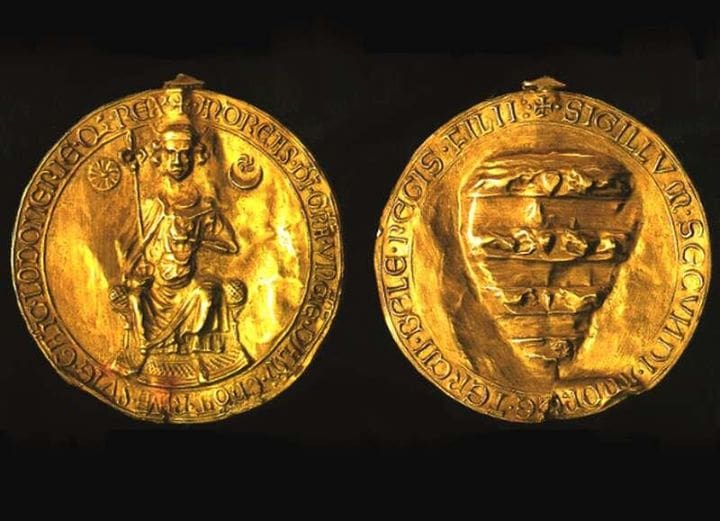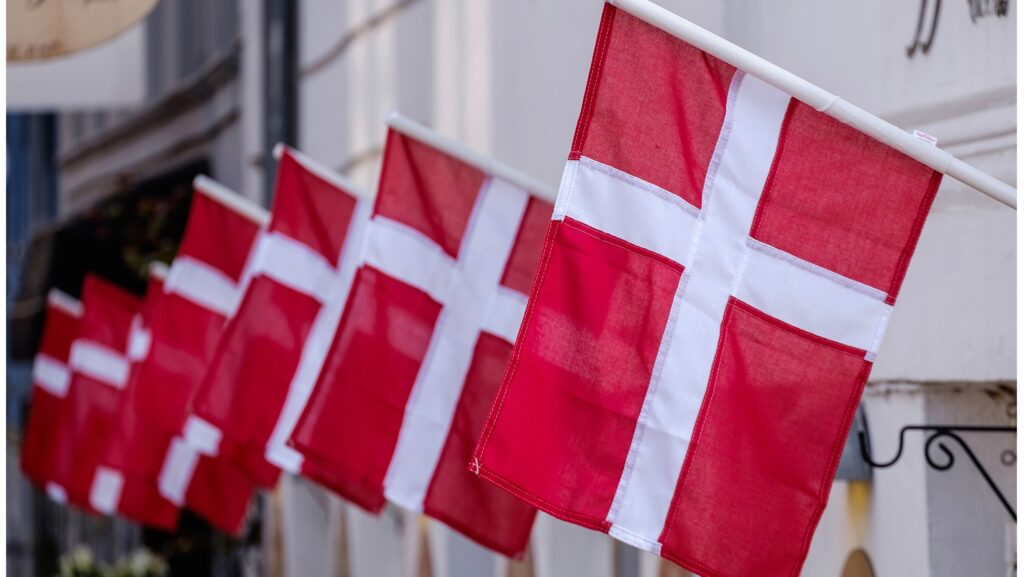It was the year 1222 when King Andrew (András or Endre) II returned from his Crusade to the Holy Land and was forced to strike a deal with the noblemen of Hungary and ensure privileges for them. The Hungarian ‘sibling” of the Magna Carta Libertatum of England, the Golden Bull, became the Hungarian historical constitution, a defining document of Hungarian history.
Once upon a time, there was a Kingdom of Hungary—a Central European power. The wealth of its kings, the richness of its lands, and its political weight rivalled those of France and England. Sounds like a fairy tale? Yes, these were the golden centuries of Hungarian history, an era which ended with the Ottoman conquests five hundred years ago. A historical period with only a few surviving physical mementos, due to the storms of subsequent centuries.
The medieval Kingdom of Hungary was a well-organized state, going its own way, with a history of hardships, triumphant military campaigns, and sad internal conflicts, under successful knight kings as well as some more unfortunate rulers. Hungary, established in the year 1000 by King Stephen I (who was subsequently canonized as Saint Stephen) was ruled for three hundred years by the Árpád dynasty, the descendants of the chieftains of Hungarian tribes that conquered the Carpathian Basin towards the end of the ninth century.
One of the exquisite rulers of Hungary—a Christian feudal state since the eleventh century—was Andrew II, who ruled between 1205 and 1235.
One of the exquisite rulers of Hungary—a Christian feudal state since the eleventh century—was Andrew II, who ruled between 1205 and 1235. Andrew was the second son of King Béla III’s – a strong and successful king with international influence who left a well-organized country to his successor. After Béla’s death in 1196, his first son Imre became the king of Hungary, but the power-hungry Andrew was dissatisfied with the castles and estates he received, and waged a fight against his brother for years, behaving as if he was the king of the territories he occupied, collecting taxes and issuing coins. The Pope of Rome had to mediate in the bitter sibling rivalry, and Andrew at some point was thrown into King Imre’s jail. The conflict was only resolved with King Imre’s sudden death in 1204, and the passing away of his son, László III, still a minor, a year later.
Thus, Andrew ascended to the throne in 1205, and following his ambitions, he became a rather active ruler both at home and abroad. He fundamentally changed the system of power in Hungary by starting to dole out parts of the enormous royal estates—which had ensured very strong personal power for the Hungarian kings even in an international comparison—to his supporters, secular as well as church figures, both Hungarian and foreign. He gave away whole counties to his confidants.
As a result of the king’s carelessness, the strengthened feudal lords took control of their own lands, taking matters into their own hands, including the conquering of additional territories. The power of the king was diminishing.
Growing tensions resulted in a palace coup in 1213, when a group of noblemen led by Viceroy Bánk (Bánk bán) killed King Andrew’s German wife, Queen Gertrude, and those belonging to her household. Based on this historical event, Bánk bán, one of the most popular Hungarian operas to this day, was composed in the period of nineteenth-century Romanticism.
Subsequently, although unable to take full revenge for the killing of her wife, King Andrew tried to sort out the affairs of the country. That was when medieval public administration in Hungary became increasingly well-organized.

A distant event, however, stirred things up: Henry, the ruler of the Latin Empire of Constantinople, passed away in 1216, and one of the pretenders to the throne of Byzantium was the King of Hungary. King Andrew himself was half Latin (of the Holy Land), since his mother was Agnes Chatillon, Queen consort of Hungary, descending from the Crusader rulers of the Holy Land. Since King Andrew had been planning, since his youth, a crusade of his own, he felt it was now time to leave for the East.
He marched to the Holy Land with a ‘splendid army’, as complimented by an Arab chronicler. The crusade, however, failed to bring any major success for Christians, and after several adventures, the king returned to Hungary. Later, critical commentators called the crusade ‘an expensive holiday trip’ for the king.
When Andrew II saw his country again, what he found was, in his own words, ‘not Hungary, but a country torn, ravaged, and robbed of all income of the treasury.’ Additional years of conflict followed, with the king struggling for power and a new balance with various groups of the elite.
The Golden Bull of 1222 was the result of those struggles. It was one of the first and one of the most important laws of Hungarian constitutionality, formulated only seven years after the Magna Carta of England. Similarly to the famous English law, it stipulated the rights of the nobility vis-à-vis the king’s power. Its central provision guaranteed the nobility’s right of resistance, without being accused of disloyalty, should the king act contrary to law.
The Golden Bull also stipulated the prohibition of arrest or suppression of the nobility in the framework of the legal order of summoning persons and issuing sentences. Noblemen were exempted from taxes, and the order of calling them to war was regulated. The right of foreigners to acquire national office was restricted. At the same time, the right of Hungarian noblemen to hold several posts was also restricted.
Noblemen were exempted from taxes, and the order of calling them to war was regulated
‘If ourselves, or any of the kings coming after us, acted against this contract between us, this document shall give power to bishops and other feudal lords and domestic noblemen, both collectively and individually, both currently and in future, to resist against us and contradict us as well as the kings going forward, without the shame of disloyalty, for good,’ goes the closing paragraph of the Golden Bull.
The Hungarian Golden Bull, similarly to corresponding Western regulations at the time, provided a basis for a very early version of democracy and constitutionality, significantly limiting the absolute power of the king, guaranteeing permanent rights and protection by law—at least for a privileged layer of society, consisting of noblemen and members of the clergy.
From then onward, the institution of jus resistendi of the nobility was a key factor for centuries, impacting subsequent turning points in the history of the Hungarian nation.
The 800th anniversary of the Golden Bull is celebrated by Hungary this year, in 2022, with a memorial year. In the city of Székesfehérvár, the capital of the Kingdom of Hungary at the time of the Golden Bull, a large-scale exhibition called ‘Kings and Saints’ has already opened, showcasing the age of the Árpáds to the general public.
arpadok.hu
This domain may be for sale!








